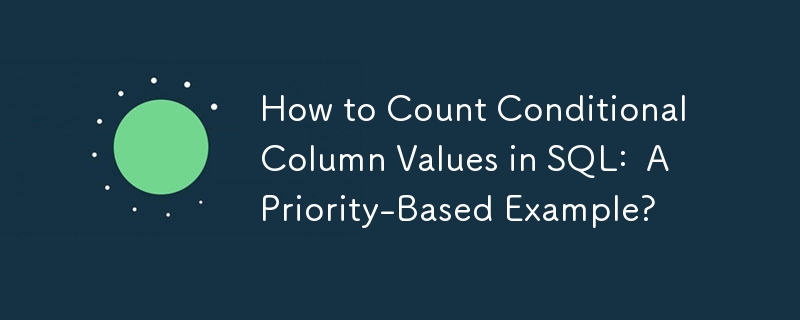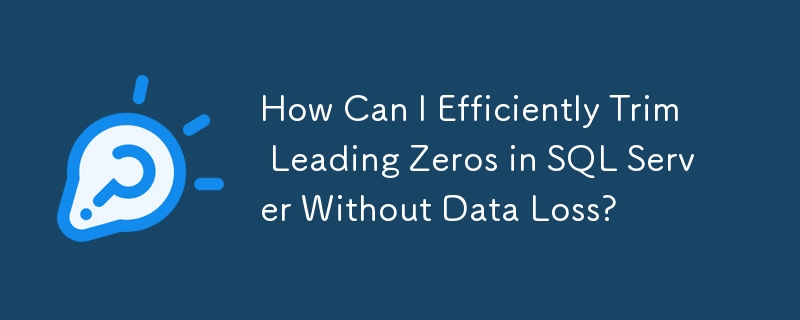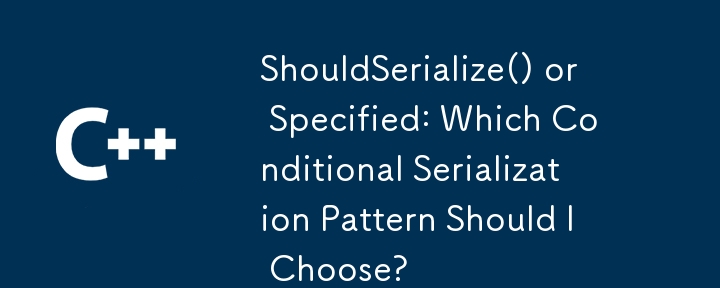Found a total of 10000 related content
Methods for implementing cache acceleration in PHP and MySQL combined with Redis
Article Introduction:Redis is needed to speed up the combination of PHP and MySQL, because Redis can significantly increase data access speed and reduce database query burden. Specific methods include: 1. Cache MySQL query results into Redis to reduce the number of direct queries; 2. Use publish-subscribe mode or transaction to ensure cache consistency; 3. Prevent cache penetration through Bloom filters; 4. Set different expiration times or use distributed locks to avoid cache avalanches; 5. Implement hierarchical cache, data warm-up and dynamic adjustment strategies to further optimize performance.
2025-05-28
comment 0
463


How Can You Implement Caching in a PHP Application?
Article Introduction:To effectively implement the cache of PHP applications, first enable OPcache to improve script execution efficiency; secondly, output cache for static pages; secondly, use Memcached or Redis to cache data; finally control browser cache through HTTP headers. 1. Enable OPcache and configure the memory and file count parameters. 2. Generate cache files for frequent access to the page and determine whether they need to be regenerated when requesting. 3. Store database results, API responses, etc. in Redis or Memcached, and set the key name policy and expiration time. 4. Set up HTTP headers such as Cache-Control and ETag to optimize the cache effect of API and static resources, reduce bandwidth usage and speed up loading
2025-07-14
comment 0
131

How Do I Use Opcode Caching Effectively in PHP 8?
Article Introduction:This article explores effective opcode caching in PHP 8. It details choosing the right cacher (Opcache, Redis, Memcached), configuring Opcache (memory allocation, revalidate_freq), monitoring performance (cache hits/misses), troubleshooting (file
2025-03-10
comment 0
770
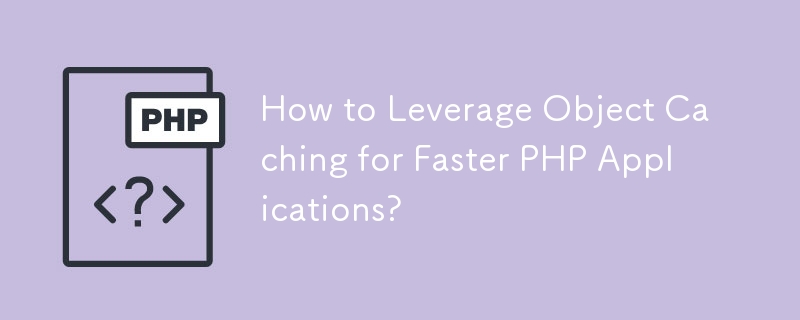
How to Leverage Object Caching for Faster PHP Applications?
Article Introduction:This article explores leveraging object caching in PHP to boost application speed. It details choosing a backend (Redis/Memcached), implementing a caching layer, serialization/deserialization, key generation, and cache invalidation. Best practices
2025-03-10
comment 0
1090
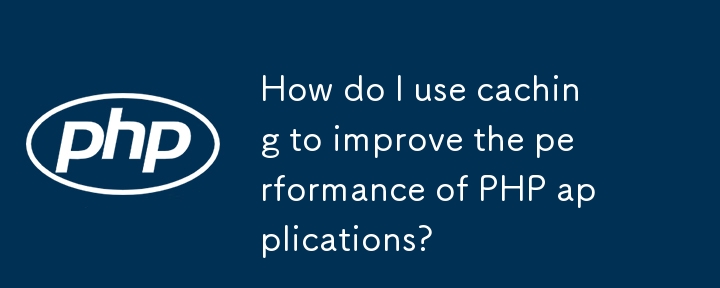
How do I use caching to improve the performance of PHP applications?
Article Introduction:Using caching is one of the most effective ways to improve the performance of PHP applications, which reduces server load and speeds up response time by avoiding duplicate and expensive operations. 1. Enable OPcache for opcode cache, store precompiled script bytecode in memory, set opcache.enable to On, and enable CLI cache and adjust memory consumption as needed; 2. Cache database query results, use tools such as APCu, Memcached or Redis to temporarily store infrequently, and set appropriate TTL according to the data update frequency; 3. Implement page or fragment cache, store static HTML content and quickly return based on unique keys to reduce duplicate processing; 4. Use HTTP cache headers such as Cache
2025-06-20
comment 0
396

Are there any alternatives to PHP sessions?
Article Introduction:Alternatives to PHP sessions include Cookies, Token-based Authentication, Database-based Sessions, and Redis/Memcached. 1.Cookies manage sessions by storing data on the client, which is simple but low in security. 2.Token-based Authentication uses tokens to verify users, which is highly secure but requires additional logic. 3.Database-basedSessions stores data in the database, which has good scalability but may affect performance. 4. Redis/Memcached uses distributed cache to improve performance and scalability, but requires additional matching
2025-04-29
comment 0
370

Easily integrate RedisDB with Composer: Solve caching issues in PHP projects
Article Introduction:When developing a high-traffic e-commerce website, I encountered a tricky problem: the website's response speed becomes slower and slower as the number of users increases. After some investigation, I found that database queries are the main reason for performance bottlenecks. To solve this problem, I decided to introduce Redis as the cache layer, but how to efficiently integrate Redis in PHP projects has become a new challenge. Fortunately, I found the Composer package orangeman/redisdb, which simplified my workflow and greatly improved the performance of the website.
2025-04-18
comment 0
980
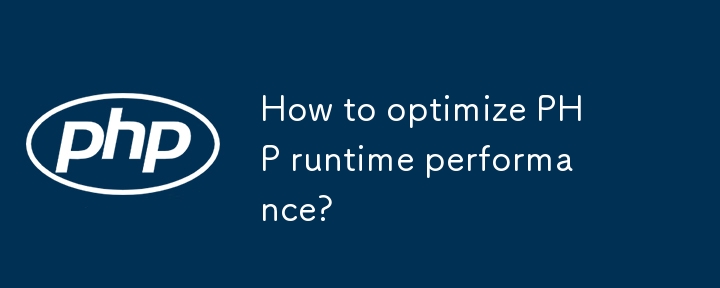
How to optimize PHP runtime performance?
Article Introduction:PHP performance optimization needs to start from the core link. 1. Turn on OPcache to significantly improve script parsing speed and reduce duplicate compilation; 2. Reduce database queries and use cache reasonably (such as Redis, Memcached, APCu) to reduce database pressure; 3. Optimize PHP-FPM configuration (such as adjusting max_children, setting request_terminate_timeout) to improve concurrent processing capabilities; 4. Avoid unnecessary framework functions and third-party dependencies, streamline code structure, and reduce runtime overhead. These methods are gradually applied in daily development and can effectively improve performance.
2025-06-30
comment 0
294
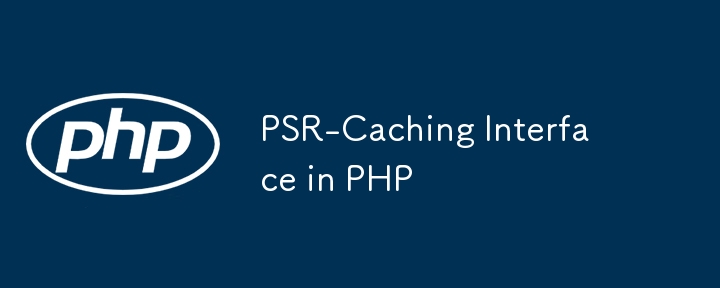
PSR-Caching Interface in PHP
Article Introduction:Hello everyone! Is your application running slowly due to repetitive database queries? Or have trouble switching between different caching libraries? Let’s dive into PSR-6, the standard that makes caching in PHP predictable and interchangeable! This article is part of the PHPPSR standards series. If you are new to this, you may want to start with PSR-1 basics. What problem does PSR-6 solve? (2 minutes) Before PSR-6, each cache library had its own unique way of working. Want to switch from Memcached to Redis? Rewrite your code. Migrating from one framework to another? Learn the new caching API. PSR-6 solves this problem by providing a common interface that all cache libraries can implement. nuclear
2025-01-11
comment 0
1244
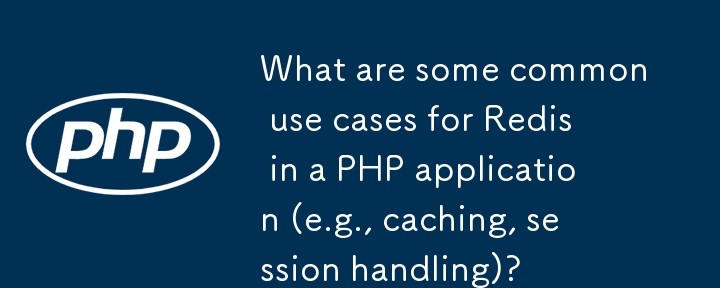
What are some common use cases for Redis in a PHP application (e.g., caching, session handling)?
Article Introduction:Redis has four main core uses in PHP applications: 1. Cache frequently accessed data, such as query results, HTML fragments, etc., and control the update frequency through TTL; 2. Centrally store session information to solve the problem of session inconsistency in multi-server environments. The configuration method is to set session.save_handler and session.save_path in php.ini; 3. Implement current limiting and temporary counting, such as limiting the number of login attempts per hour, and using keys with expiration time for efficient counting; 4. Build a basic message queue, and implement asynchronous task processing through RPUSH and BLPOP operations, such as email sending or image processing, thereby improving system response speed and expansion
2025-06-18
comment 0
964
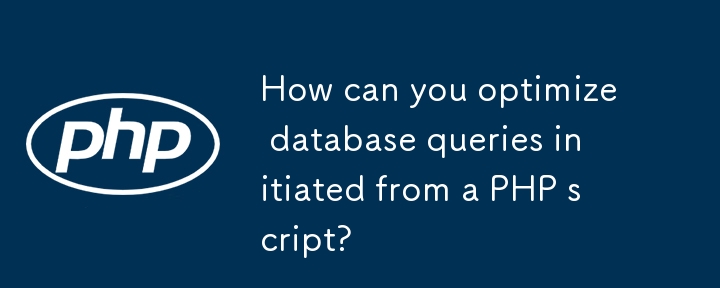
How can you optimize database queries initiated from a PHP script?
Article Introduction:The key to optimizing database query performance in PHP scripts is to reduce overhead, minimize round trips, and ensure that the database only performs necessary operations. The specific methods are as follows: 1. Use indexes on frequently queried columns, such as user ID or mailbox, to speed up searches; but avoid overuse to avoid affecting write performance; 2. Only obtain the required fields, avoid SELECT*, and combine LIMIT to limit the result set; 3. Process queries in batches to avoid multiple requests in the loop; 4. Use preprocessing statements reasonably to improve the efficiency of repeated queries, and use cache tools such as Redis to store unchanged data to reduce database access. These measures can significantly improve the overall response speed and resource utilization of applications.
2025-06-07
comment 0
305
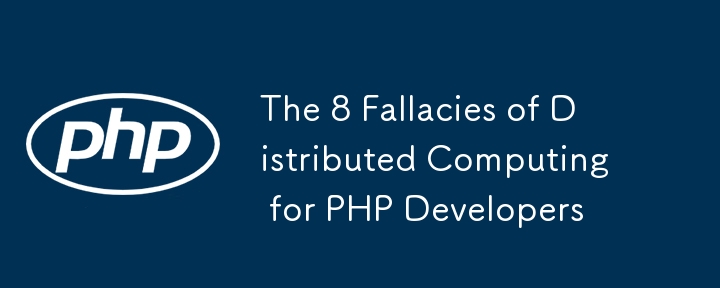
The 8 Fallacies of Distributed Computing for PHP Developers
Article Introduction:Eight misunderstandings that PHP developers need to be vigilant about in building distributed applications
Peter Deutsch proposed seven misunderstandings about distributed computing in 1997, and later James Gosling (the father of Java) added one. These misunderstandings are crucial for PHP developers because we build distributed applications every day: mashup, applications that interact with SOAP and REST services, user authentication through Facebook, Google or Twitter APIs, retrieving information from remote databases and cache services, and more. What we build is a distributed computing application. Therefore, it is crucial to understand these eight misunderstandings and their implications.
Key points:
Peter De
2025-02-27
comment 0
925
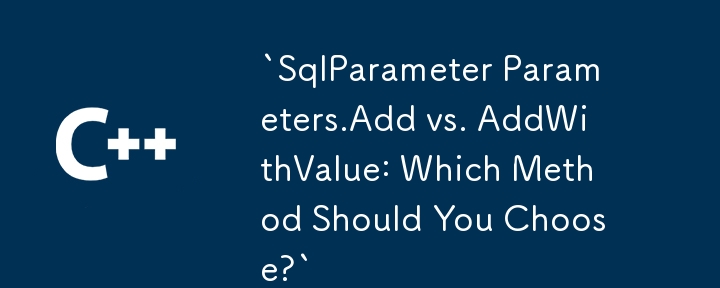

Dave The Diver: How To Catch Spider Crabs
Article Introduction:In Dave The Diver, there are some creatures that are not easy to catch. Or, catch alive that is. The spider crab is one of those very species, making it seem like the only way to bring these crustaceans back up to land is to viciously crack them up w
2025-01-10
comment 0
792

Prepare for Interview Like a Pro with Interview Questions CLI
Article Introduction:Prepare for Interview Like a Pro with Interview Questions CLI
What is the Interview Questions CLI?
The Interview Questions CLI is a command-line tool designed for JavaScript learners and developers who want to enhance their interview
2025-01-10
comment 0
1421














